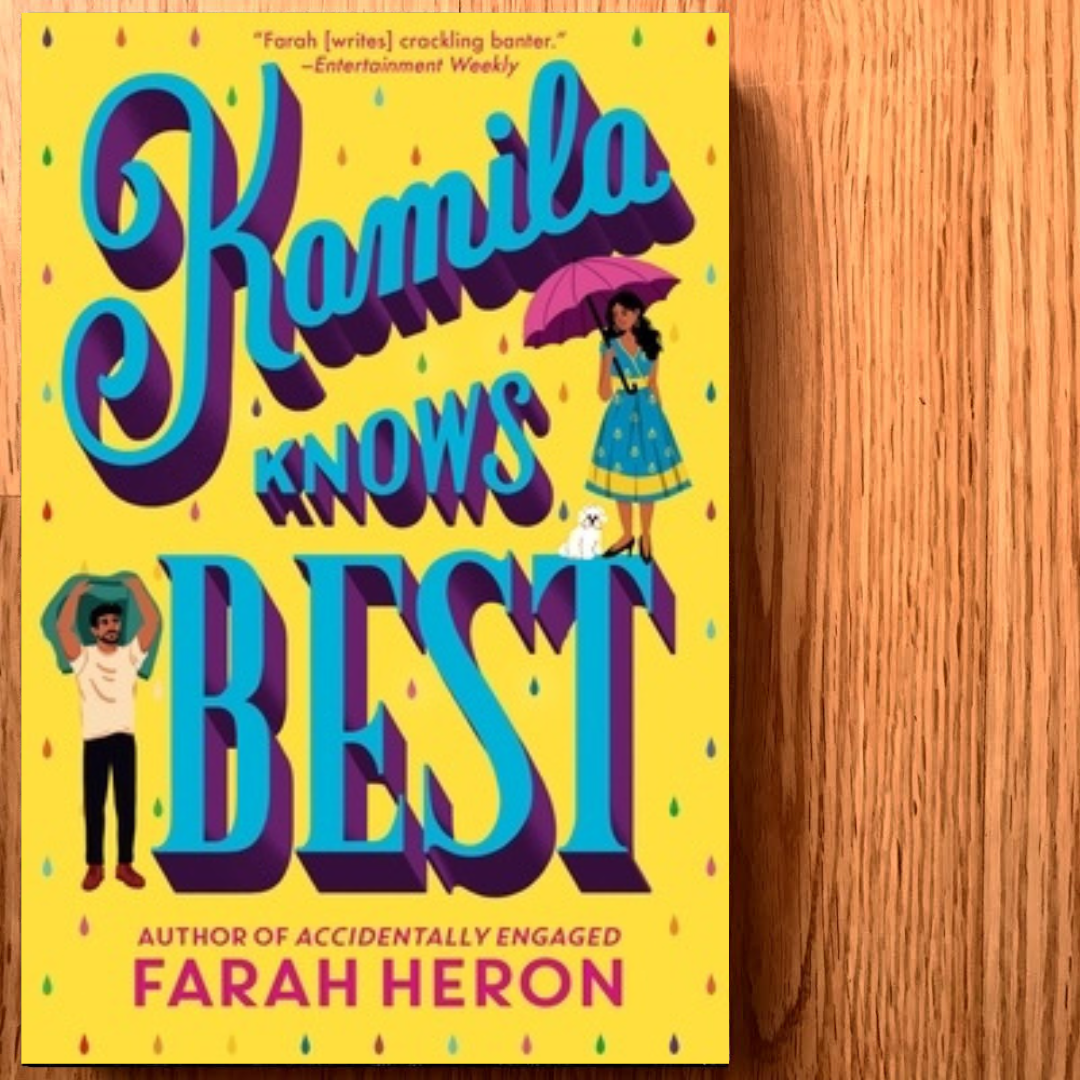By Sara Hailstone
Farah Heron presents her rendition of Jane Austen’s Emma with her book Kamila Knows Best. Kamila Hussain is just like Emma Woodhouse in that she plays matchmaker with members of her social circle and is connected to a wealthy clique in Toronto’s modern boroughs. As an accountant with her father’s firm, she also cares for her ailing father and is known within her society for throwing elaborate and detailed theme parties. She is the total package: with good looks and an impeccable wardrobe, she is admired and perseveres through the stereotypes of her career, offering cutting-edge and fresh takes on getting a feminine foothold against the current of an overwhelmingly masculine industry. She is whole in person and is not looking for marriage.
Heron slowly teases out a romantic arc for Kamila, but her character strives for more in a world that, despite its contemporary setting, still limits expectations of women. Kamila asserts her desire to take over her father’s company upon his retirement. In a narrative flushing out childhood issues, Kamila Knows Best is a vibrant coming-of-age story of a woman from a South Asian Toronto community.
Inspired by Jane Austen, Farah Heron has carved out her own style of romantic comedies depicting families from South Asian communities. Her debut novel, The Chai Factor, was widely praised, as was its follow up, Accidentally Engaged. Her debut young adult novel, Tahira in Bloom, was deemed the best rom-com of the year by USA Today. Heron’s narrative style stands out as an entry for readers into lives of art, food, family, and love.
In painting the world of a charismatic woman enmeshed in vibrant settings, with Kamila’s lush Bollywood-themed parties and exquisite interior design, Heron offers us entry into this world through food. During the pre-planning of her Bollywood movie night, the reader follows Kamila into a train-of-thought of menu decisions and witnesses the handmade preparations of appetizers. (She has chosen chili-paneer kebobs and vegetable momo dumplings with chili-ginger chutney.) When Kamila struggles with making cooking mishaps, Rohan, her endearing family friend, steps in and saves the day. Their teamwork results in a scrumptious party and a growing romance between the pair. At the end of the novel, Heron lists the full recipes of the dishes presented in the text. Readers can try out the food in the book, a unique inclusion that further allows intimacy.
Overall, the parallel that Heron draws between Emma Woodhouse and Kamila Hussain transforms this first impression rom-com into a text of necessity within a Canadian canon in giving voice and representation to South Asian communities. Firstly, Kamila thrives within a family dynamic of being taken care of while caregiving for her father. But, if autonomous, Kamila would flourish on her own. Her personality is not confined to construct. Kamila is independent in social orientations and career. She also does not exhibit fluency within the feminine domestic domain only but transgresses gender expectations by being a successful accountant. She is not looking for marriage and love to fulfill her being, but it comes to her nonetheless.
Thank you to Farah Heron and Hachette Book Group for the complimentary copy in exchange for an honest review!

